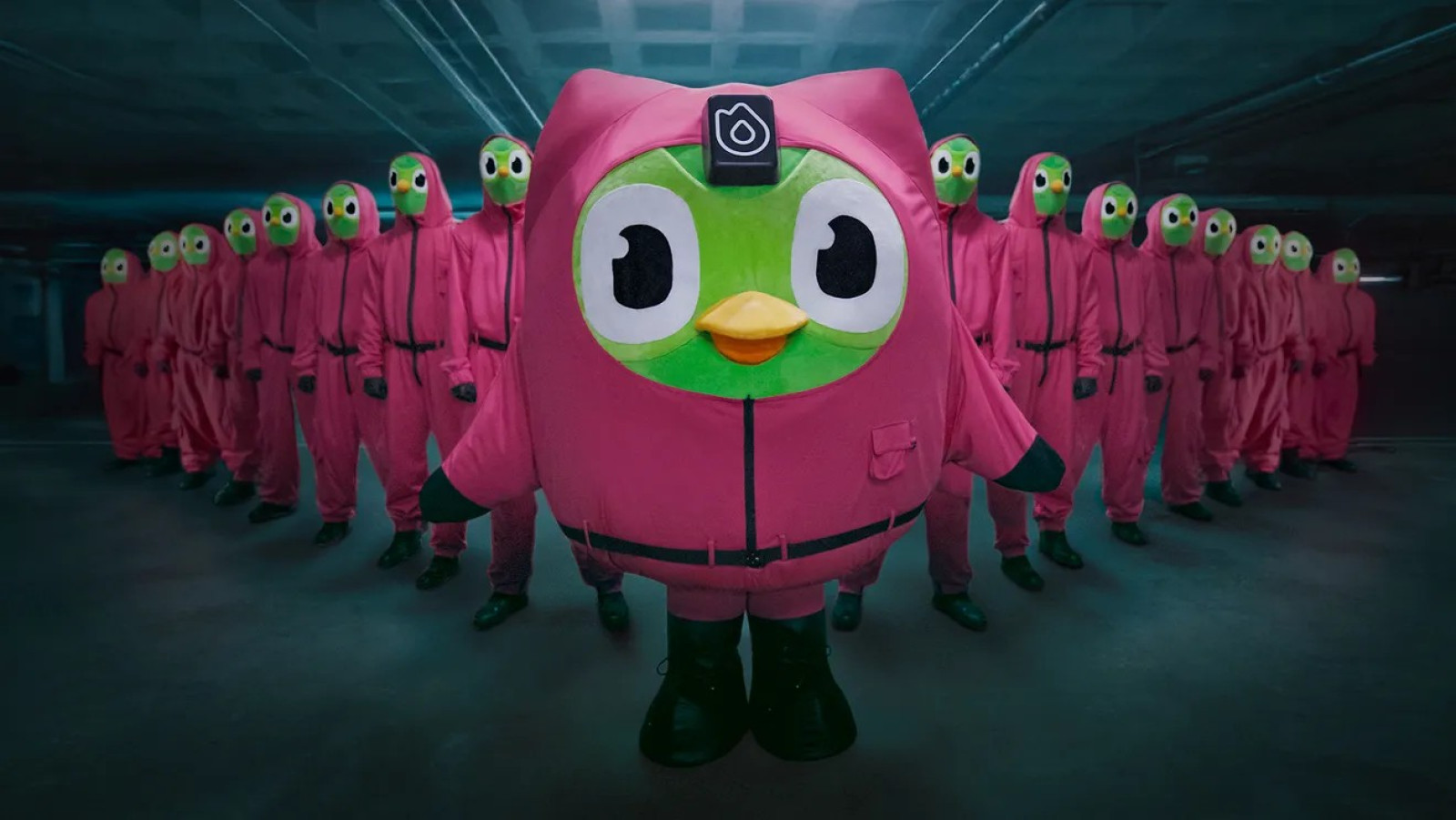Netflix, Duolingo, and the art of engagement in a fiercely competitive attention economy

Photo: Duolingo

Netflix is making sure everyone knows that Squid Game 2 is just around corner. The South Korean dystopian survival thriller has been subjected to a major global advertising splash ahead of the shows’ second season release on December 26, 2024. The marketing drive has spanned tie-ups with brands like Knorr and Crocs to publicity stunts where 200 pink guards descended on St Kilda Beach in Melbourne, Australia.
But it is Netflix’s partnership with the language learning app Duolingo that represents the most innovative take on how to drum up excitement in an age where the competition for audience attention has never been tougher.
Netflix and Duolingo are teaming up to help viewers learn 40 keywords and phrases in Korean that will be used in the show from “you’ve been eliminated” and “trust no one” to “let’s play a game”. These phrases will be interwoven with references from the show when Duolingo users start learning Korean on the app.
The pair have also taken their advertising campaign a step further with an interactive game filter on TikTok that allows user to flex their Korean language skills through voice-activated challenges. Meanwhile, a K-Pop remix of the Squid Game theme track titled Korean or Get Eaten (which features in the Duolingo Squid Game advert) is also available to stream on Spotify.
According to Duolingo, this far-reaching branding partnership was prompted by a 40% spike in users opting to learn Korean when the first Squid Game series was released in2021.
Featured Report
MIDiA Research 2026 predictions Change is the constant
Welcome to the 11th edition of MIDiA’s annual predictions report. The world has changed a lot since our inaugural 2016 edition. The core predictions in that report (video will eat the world, messaging apps will accelerate) are now foundational layers of today’s digital economy.
Find out more…Netflix is targeting consumers where they are most engaged
However, this marketing strategy is more proactive than the language learning app describes. At a base level, it shows the numerous ways consumers must now be tapped considering how widely and thinly spread consumer engagement has become.
Netflix is turning to apps that have become highly adept at mining the smallest gaps left in a consumer’s available time: Duolingo provides snackable lessons that can be completed on a coffee break; TikTok provides moreish videos that can be digested in fleeting bursts, while Spotify is the background soundtrack to our working lives (especially those working from home).
By partnering with Duolingo and TikTok, Netflix can also lean heavily into the consumer appetite to go beyond passively watching and engage with the entertainment they love. By teaching Korean phrases, Duolingo enables Netflix viewers to have a greater stake in the experience when they watch the show. Meanwhile, the TikTok interactive filter caters to the consumer’s desire to play.
Fuelling the cultural wave
Taken together, Netflix’s multi-pronged approach demonstrates how cultural moments must be maximised in the modern age. They now take place on our smartphones across a variety of apps that are all competing for our attention. While the first series of Squid Game may have been key for bolstering Korean language learning on Duolingo and creating viral moments on TikTok, Netflix has rightly identified that such engagement can flow in both directions.
These partnerships not only enable Netflix to prepare the ground for an even greater cultural splash when the series is released later this month, but also makes the biggest competitors for streaming TV engagement – social, gaming and interactive apps – part of the experience.

The discussion around this post has not yet got started, be the first to add an opinion.